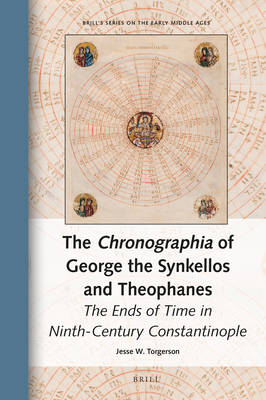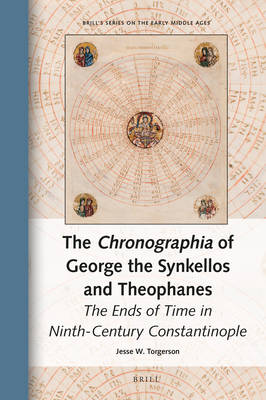
Bedankt voor het vertrouwen het afgelopen jaar! Om jou te bedanken bieden we GRATIS verzending (in België) aan op alles gedurende de hele maand januari.
- Afhalen na 1 uur in een winkel met voorraad
- In januari gratis thuislevering in België
- Ruim aanbod met 7 miljoen producten
Bedankt voor het vertrouwen het afgelopen jaar! Om jou te bedanken bieden we GRATIS verzending (in België) aan op alles gedurende de hele maand januari.
- Afhalen na 1 uur in een winkel met voorraad
- In januari gratis thuislevering in België
- Ruim aanbod met 7 miljoen producten
Zoeken
The Chronographia of George the Synkellos and Theophanes
The Ends of Time in Ninth-Century Constantinople
Jesse W Torgerson
€ 233,95
+ 467 punten
Omschrijving
The ninth-century Chronographia of George the Synkellos and Theophanes is the most influential historical text ever written in medieval Constantinople. Yet modern historians have never explained its popularity and power. This interdisciplinary study draws on new manuscript evidence to finally animate the Chronographia's promise to show attentive readers the present meaning of the past.
Begun by one of the Roman emperor's most trusted and powerful officials in order to justify a failed revolt, the project became a shockingly ambitious re-writing of time itself--a synthesis of contemporary history, philosophy, and religious practice into a politicized retelling of the human story. Even through radical upheavals of the Byzantine political landscape, the Chronographia's unique historical vision again and again compelled new readers to chase after the elusive Ends of Time.
Begun by one of the Roman emperor's most trusted and powerful officials in order to justify a failed revolt, the project became a shockingly ambitious re-writing of time itself--a synthesis of contemporary history, philosophy, and religious practice into a politicized retelling of the human story. Even through radical upheavals of the Byzantine political landscape, the Chronographia's unique historical vision again and again compelled new readers to chase after the elusive Ends of Time.
Specificaties
Betrokkenen
- Auteur(s):
- Uitgeverij:
Inhoud
- Aantal bladzijden:
- 476
- Taal:
- Engels
- Reeks:
- Reeksnummer:
- nr. 28
Eigenschappen
- Productcode (EAN):
- 9789004501690
- Verschijningsdatum:
- 28/07/2022
- Uitvoering:
- Hardcover
- Formaat:
- Genaaid
- Afmetingen:
- 157 mm x 249 mm
- Gewicht:
- 1088 g

Alleen bij Standaard Boekhandel
+ 467 punten op je klantenkaart van Standaard Boekhandel
Beoordelingen
We publiceren alleen reviews die voldoen aan de voorwaarden voor reviews. Bekijk onze voorwaarden voor reviews.









